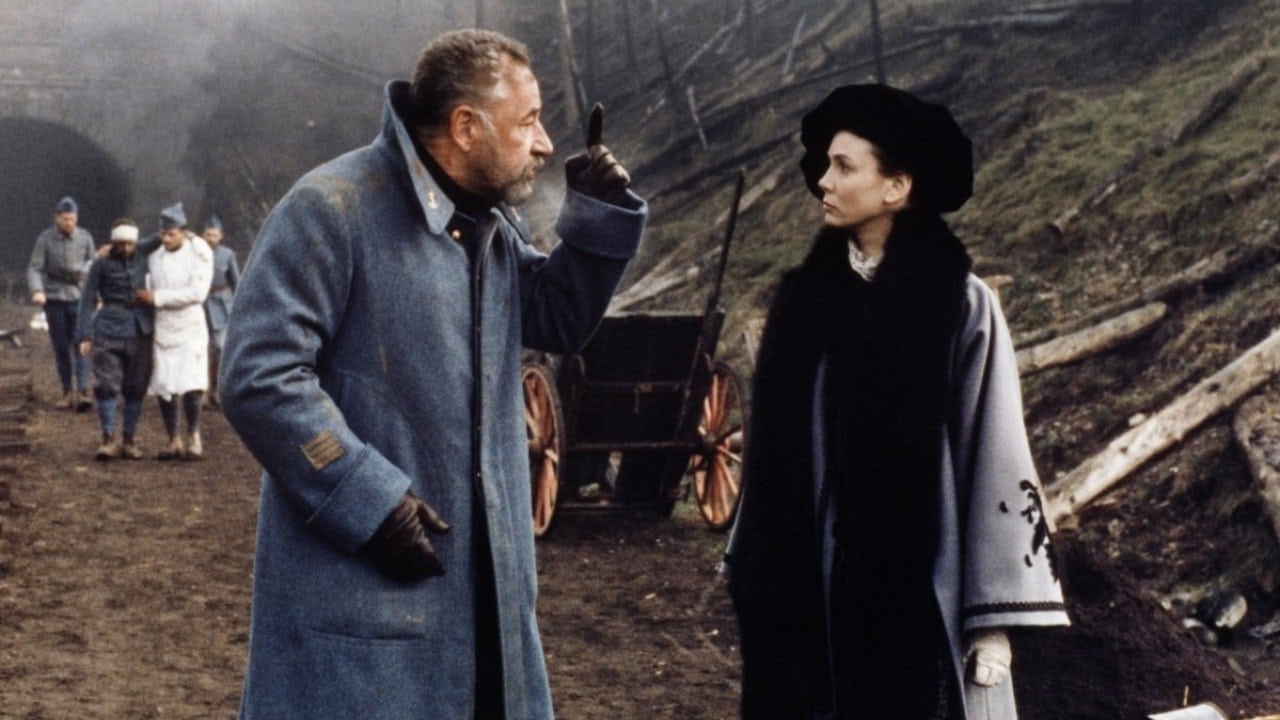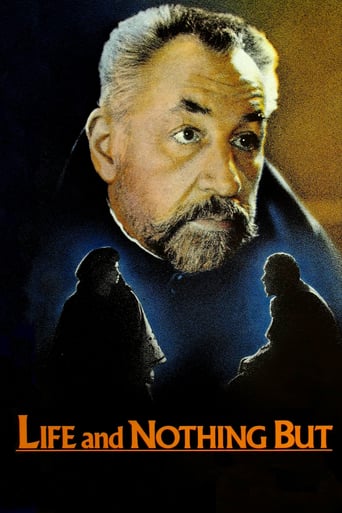Diagonaldi
Very well executed
Huievest
Instead, you get a movie that's enjoyable enough, but leaves you feeling like it could have been much, much more.
Janae Milner
Easily the biggest piece of Right wing non sense propaganda I ever saw.
Aneesa Wardle
The story, direction, characters, and writing/dialogue is akin to taking a tranquilizer shot to the neck, but everything else was so well done.
Luc Rolland
When I saw this movie at the Montreal Film Festival, I was impressed by this contemplative movie. Like any contemplation, it sees everything about human nature and subtly refers to it. No flash, no gadgets, no lectures, just the plain vision of things as they are. He just lets you to be the judge of things. Then, I became a great fan of Tavernier's movies. This movie occupied my mind for ever after and never left me. This movie also confirmed how useless and dreadful this war was, and maybe how ridiculous most wars are. Perhaps my favourite movie ever. Anyway, a must see.This movie has a sequel called Captain Conan which also shows Tavernier's prowess in making art and intelligent cinema where a lot of characters are involved and seem so natural.
Corvin Ello
It is the end of the first World War, in France. Major Delaplane (Noiret) is ferociously determined to insure no dead soldier remains anonymous, despite the pressure from military and political authorities to keep them buried as a "lot".He keeps scrupulous count of each and every "casualty" he finds, treating each dead man with the absolute and final equality attained in death: he refuses to put any extra effort in tracing a rich one faster than a poor one.When he meets a grieved, upper-class widow looking for her dead husband, this man and this woman's worlds are shaken. From their distant positions, they start a slow and respectful journey towards each other, and the power of life over destruction will prevail.As always with Bertrand Tavernier, the personal story of the characters is tightly woven into the political issues of the times, as it is for all of us, whether we realize and like it or not.This is a film that celebrates the power of the individual within society, not outside of it. It is good for the soul in these times of fatalism, cynicism and loss of hope in man's good will.If you like this film, do not miss Tavernier's other films, they are all excellent.
quincey-2
A wonderfully acted and well written drama set in France in the aftermath of World War One. It's a romance about the importance of memory in morality and love and coming to terms with loss on an individual and national scale.
jameswtravers
This is a powerful film with a genuinely epic feel. The backdrop of a post-war battle field is movingly sombre, with sets scattered with the last remains of soldiers, some hastily dug graves, and hoards of women mourning the loss of husbands and sons. There is no sense of victory or joy after the war, and its central character, Delaplane - brilliantly played by Philippe Noiret - portrays the mood of grim realism of what the war has done to his country and to his life.
Unfortunately, the film is let down by a somewhat feeble love story involving Delaplane which has an unsatisfactory and unconvincing resolution.
At way over two hours in length, the lack of a substantial central plot is more than noticeable. Towards the end, the film becomes slow and almost boring, despite some impressive visual images. It is almost as if the grimness of the subject matter has completely overwhelmed the film. However, considering how grim the subject matter is, that is hardly surprising.

